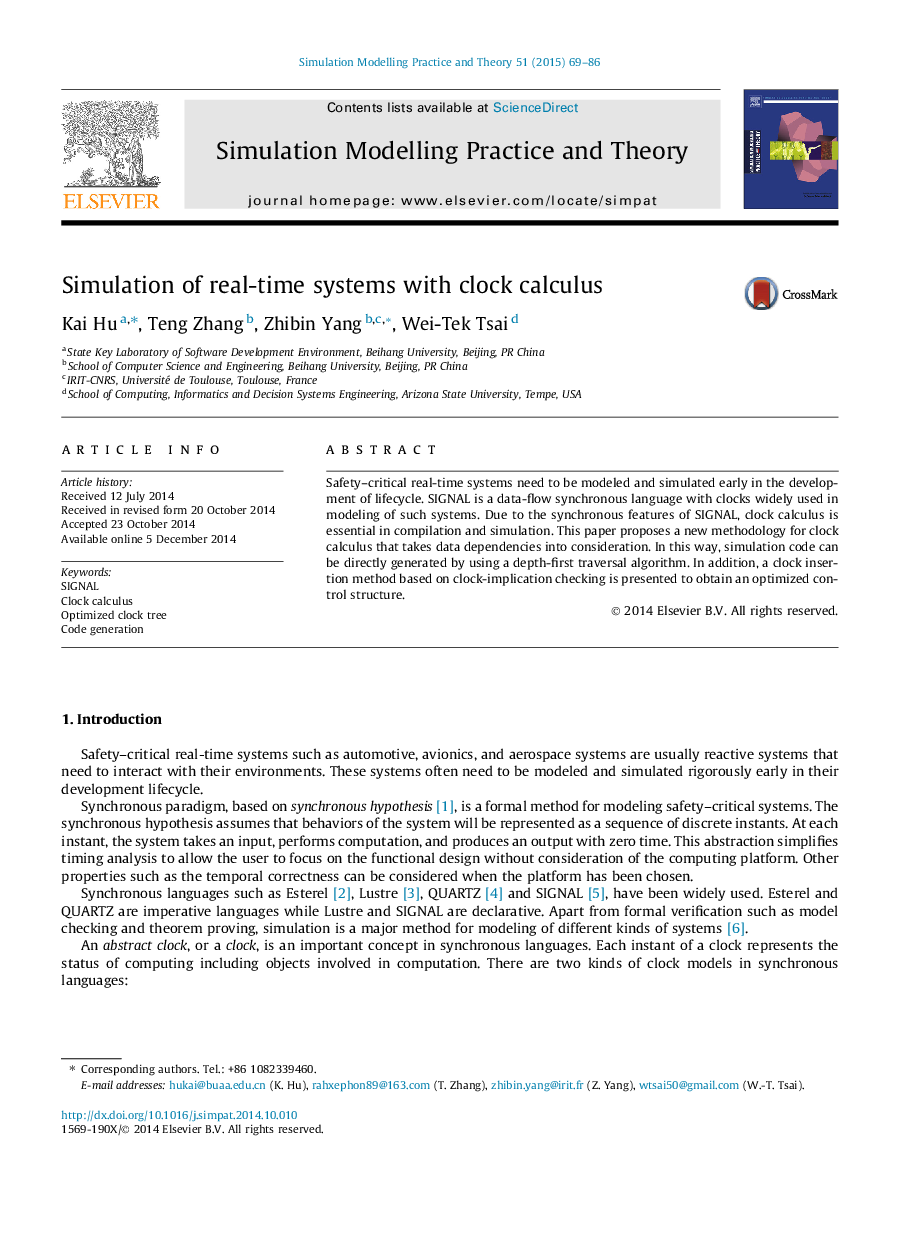| Article ID | Journal | Published Year | Pages | File Type |
|---|---|---|---|---|
| 491748 | Simulation Modelling Practice and Theory | 2015 | 18 Pages |
Abstract
Safety–critical real-time systems need to be modeled and simulated early in the development of lifecycle. SIGNAL is a data-flow synchronous language with clocks widely used in modeling of such systems. Due to the synchronous features of SIGNAL, clock calculus is essential in compilation and simulation. This paper proposes a new methodology for clock calculus that takes data dependencies into consideration. In this way, simulation code can be directly generated by using a depth-first traversal algorithm. In addition, a clock insertion method based on clock-implication checking is presented to obtain an optimized control structure.
Keywords
Related Topics
Physical Sciences and Engineering
Computer Science
Computer Science (General)
Authors
Kai Hu, Teng Zhang, Zhibin Yang, Wei-Tek Tsai,
